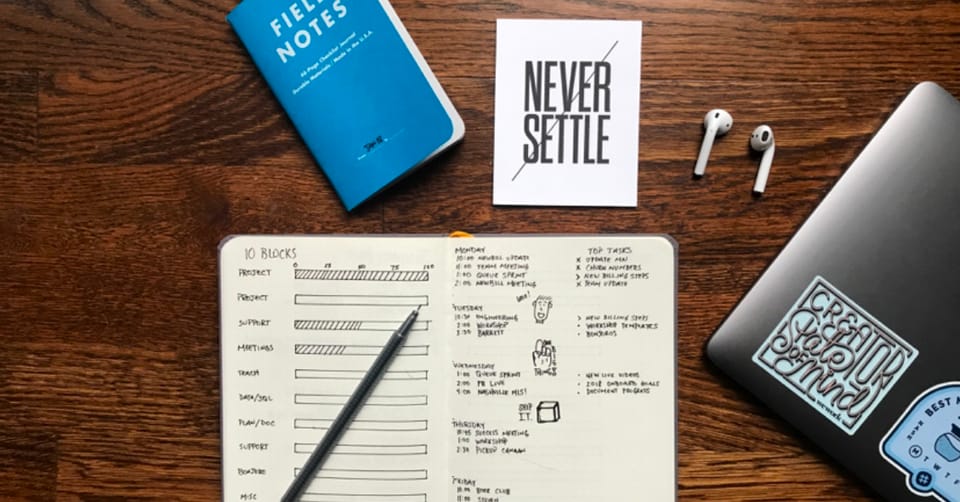Flexibility shouldn't mean always-on

As parts of the planet, but not all, start to see light at the end of the COVID tunnel, many companies have started to formalize their plans for post-COVID working conditions. Technology companies in particular are considering a “hybrid” or a “fully distributed” model, whereby you can choose to either come into a pre-agreed company office for 2/3 days per week and work from somewhere else for the balance, or work in a location of your choosing all of the time, usually in line with some requirements around tax laws and local corporate entities.
But there’s another consideration being discussed in addition to location, and that’s when you work. Companies are recognizing that punching a clock and working a strict 9-5 doesn’t work for many, especially people with family commitments, or people who just like to keep a different schedule for whatever reason. There are benefits to this approach, especially when it comes widening the pool of people you can recruit, hopefully leading to a more talented and diverse employee base. But as we embrace the positives of this, we must also be cognizant of the potential downsides, so we can build protections into this new normal.
In a world where you’re measured not by the hours you put in, but by your output, how do we avoid creating a situation where you end up working significantly more than before because of unreasonable output expectations, especially across cultures and timezones.
The pitfalls of unlimited flexibility
The clearest cautionary tale in this regard is “unlimited” paid time off (PTO). On the face of it, unlimited PTO could be considered an extremely employee-friendly policy. No more counting your days, no more stressing about whether you’ll have enough left over if your kids are sick or whether you’ll have to work over the end of year holidays.
But time and time again, unlimited PTO has led to people taking less time off. People move from a model of earning time off that belongs to them and they spend as they see fit, to time off being in the gift of their line manager, and suddenly every PTO request feels like an imposition you’re placing on your team. Some teams that embraced unlimited PTO in the past have even moved to “minimum vacation” policies to counter this effect.
Now imagine that atmosphere of imposition, but applied to when you close your laptop for the last time in a given day. You can easily picture people feeling pressured to crank out one more thing because their team has unreasonable expectations, whereas before, knowing that it was around 5:30pm would have drawn a natural line under the working day and given you explicit permission to step away from your keyboard. Ask yourself, what cultural norms should you and your team establish to recreate that “time to log-off” mentality?
Your time, your ideas?
As I write this post, I wouldn’t consider myself “at work”, but I also know that I didn’t punch a time card and sit down at my desk this morning at 9am, because Slack isn’t overly concerned with the hours I keep. But who owns these words? Do I? Does Slack?
Intellectual Property clauses are a common feature of many tech company contracts and the traditional way to establish ownership boundaries over this sort of output. Frequently they suggest that anything you create using company hardware or on company time is the property of the company. Simple enough you’d think. But consider this - I’m writing these words on my personally purchased iOS device, using software I funded myself, and will upload them to my personal GitHub. That certainly seems to make them mine. But, content creation is part of my job. It’s what I’m paid to do, so arguably Slack could claim ownership under my current employment contract. And since Slack doesn’t demand I work set hours, who’s to say what’s company time and what’s my time?
Realistically I don’t think Slack’s legal team will worry about the ownership of this content, but someone somewhere is writing the next Google. Assuming that person is employed right now, I’d imagine that their employer would be very interested in that IP. For all concerned, this is another example of how agreements will need to evolve.
Use your mobility to shape your company’s approach
Those of us in the technology sector, particularly Product Managers, Designers and Engineers, have never had so many choices of where to work. There are few other industries where it is truly a job seeker’s market. And that means that employers, at least the good ones, are hyper-conscious of the challenge of retaining talented staff and will do what it takes to hold on to people. That’s a privilege that you should use to your advantage when it comes to influencing how your company will approach these decisions. As I said in Building for the new normal, the time to consider this is now.
Decisions […] need to be made before the industry starts to fall back on what worked in the past, even if it’s no longer fit for purpose.
Companies everywhere are currently discussing what work will look like in the future, and many are circling the model where the hours you put in are less important. I think this approach can provide many benefits, but we should all be careful that we don’t sleepwalk into a situation where in the name of flexibility, we end up ceding some protections - like the ability to own our ideas or to turn off our work devices - because as tempting as clearing a red notification bubble can be, that Slack message can probably wait for tomorrow.
